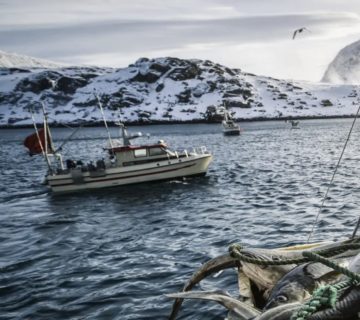Katarina Zimmer in The Scientist:
 Tickled by sunlight, life teems at the ocean surface. Yet the influence of any given microbe, plankton, or fish there extends far beyond this upper layer. In the form of dead organisms or poop, organic matter rains thousands of feet down onto the seafloor, nourishing ecosystems, influencing delicate ocean chemistry, and sequestering carbon in the deep sea.
Tickled by sunlight, life teems at the ocean surface. Yet the influence of any given microbe, plankton, or fish there extends far beyond this upper layer. In the form of dead organisms or poop, organic matter rains thousands of feet down onto the seafloor, nourishing ecosystems, influencing delicate ocean chemistry, and sequestering carbon in the deep sea.
But humanity’s taste for fish may have disrupted some of that cycling, according to new research published today (October 8) in Science Advances. A team of scientists in the US and Canada modeled the historic change in biomass of commercially targeted fish species and their influence on ocean biogeochemical processes. The researchers estimate that before industrial fishing developed around 1900, the fecal matter of these species accounted for around 10 percent of biological material sinking to the seafloor—enough to contribute considerably to carbon sequestration, nutrient fluxes, and ocean chemistry in the deep sea. By 1990, when industrial fish catch peaked, the biomass of exploited species—and their poop’s influence—had fallen by roughly half, with potential knock-on effects on the deep-sea food web.
More here.
